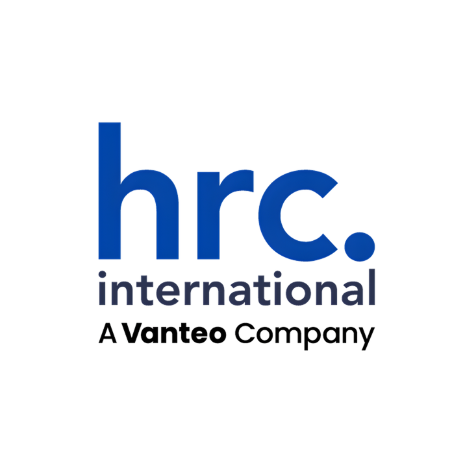Embarking on a hospitality internship or traineeship abroad is a life-changing experience. It opens the door to new cultures, skills, and career opportunities. But let’s be honest—navigating your first international move can feel overwhelming. From packing too much to underestimating the cultural shift, there are plenty of pitfalls that can hinder your success.
If you’re planning to join one of the many hospitality training programs abroad—especially under a J1 Visa—it’s important to start smart. This guide walks you through the five most common mistakes international trainees make and how to avoid them, so you can focus on making the most of your global experience.
1. Overpacking or Underpacking: Don’t Let Your Suitcase Weigh You Down
One of the earliest mistakes you can make starts before you even leave home—your packing strategy.
The Problem:
Many trainees either pack far too much (hello, 30 kg suitcase with 10 pairs of shoes!) or forget essentials like formal uniforms, important documents, or weather-appropriate clothing. Overpacking leads to travel stress and extra fees, while underpacking can affect your professional appearance and comfort during training.
The Fix:
- Pack smart, not heavy. Check the average weather in your destination and pack accordingly. Include both professional and casual wear, keeping in mind your host employer’s dress code.
- Leave space for essentials. Bring a few basics like universal chargers, travel-sized toiletries, and a lightweight jacket.
- Documents matter. Keep your passport, visa paperwork, internship offer letter, insurance, and emergency contacts handy—ideally in both digital and printed forms.
2. Arriving with the Wrong Mindset: It’s Training, Not a Holiday
There’s no denying that training abroad is exciting—new cities, new people, new experiences. But here’s the truth: some participants approach hospitality training programs like they’re extended vacations. That’s a mistake.
The Problem:
When you treat your J1 program like a getaway, you risk being late, not taking tasks seriously, or failing to ask questions. This can hurt your performance and reputation with your host employer.
The Fix:
- Think long-term. You’re not just working for tips or completing a checklist—you’re building a global career.
- Stay curious. Ask for feedback, take initiative, and view every shift as an opportunity to grow.
- Balance is key. Yes, explore during your time off—but keep your professionalism top priority while on duty.
3. Ignoring Cultural Differences: When in Doubt, Learn
Cultural misunderstandings can cause unnecessary friction at work. Whether it’s how you greet someone, your body language, or even your sense of humor—what’s polite in one culture may not translate the same in another.
The Problem:
Trainees sometimes fail to adjust to the local work culture or dismiss norms that differ from their own. This can create awkward moments or make colleagues uncomfortable.
The Fix:
- Observe and adapt. Spend your first few weeks listening and watching how your colleagues interact.
- Ask questions. It’s okay to ask your supervisor, “Is this how things are usually done here?”
- Respect diversity. Remember that part of your learning comes from embracing—not resisting—differences.
Read more here: Turning Culture Shock into Opportunity: Learning & Growing on Your J1 Visa
4. Neglecting Professionalism: Small Actions Matter
The hospitality industry is all about perception—and your attitude, punctuality, and teamwork say a lot about you.
The Problem:
Trainees sometimes show up late, wear the wrong uniform, or avoid less glamorous tasks like polishing cutlery or cleaning workstations. These small actions can create a negative impression, even if your intentions are good.
The Fix:
- Be punctual, always. In hospitality, being “on time” means arriving early and ready to work.
- Dress the part. Respect the grooming standards and uniform policies set by your host property.
Be a team player. Support your coworkers, volunteer to help, and show that you’re committed to your role.
5. Forgetting the “Exchange” in Cultural Exchange
At its core, the J1 Visa isn’t just about what you can gain—it’s also about what you share.
The Problem:
Some trainees focus solely on their learning goals and forget they’re cultural ambassadors. This can limit the richness of the exchange experience for both sides.
The Fix:
- Share your culture. Whether it’s teaching your colleagues a traditional recipe or talking about local customs, your perspective is valuable.
- Engage with your host community. Attend staff events, ask questions, and build friendships outside your own cultural group.
- Reflect often. Keep a journal or photo diary to track your journey and how you’ve grown.
Related: Cultural Exchange in J1 Hospitality Programs
Be Prepared, Be Present, Be Proud
Joining hospitality training programs abroad is one of the most rewarding steps you can take in your career. But success doesn’t happen by accident—it takes preparation, humility, and an eagerness to learn.
Avoiding these five common mistakes will not only help you succeed but will also ensure you make a lasting impression on your host company, colleagues, and future employers.
Kickstart Your Global Journey with HRC International
At HRC International, we support aspiring hospitality professionals in securing J1 Visa internships and traineeships at world-class hotels and Michelin-starred restaurants across the U.S. From cultural preparation to career coaching, we’re with you every step of the way.
Ready to go abroad the right way? Sign up today and explore our hospitality training programs designed to help you grow globally.
